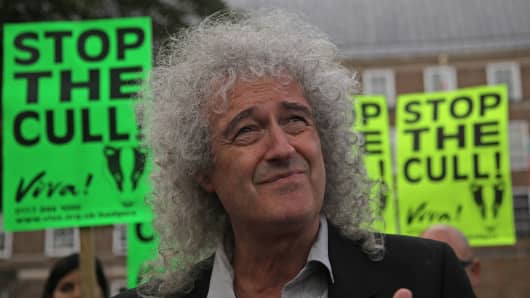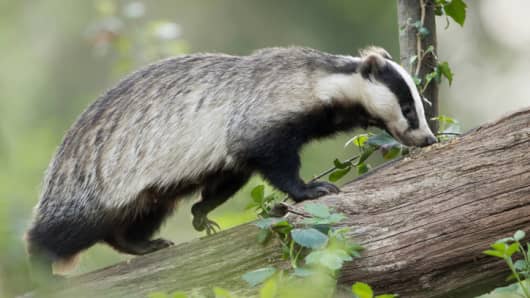Musician Meat Loaf, actress Judi Dench and Queen guitarist Brian May have joined forces in an unusual alliance in the U.K. to protest against a pilot scheme to cull badgers to stop the spread of tuberculosis (TB) in cows.
Pilot culls of roughly 5,000 badgers began this week in two English counties to stem the rising tide of bovine TB that has plagued British farmers. The cattle catch TB from infected-badgers and other animals, such as deer.
According to the U.K.'s Department for Environment, Food and Rural Affairs (DEFRA), approximately 28,000 cattle were slaughtered for TB control in England last year.
(Read more: Watch: A 24-hour panda channel)
Brian May, known for his curls and for playing the national anthem on the roof of Buckingham Palace to mark the Queen's Diamond Jubilee, has formed an animal rights group, Save Me, to focus on the prevention of fox hunting as well as the culling of badgers.
May even told the BBC in 2010 that he would rather be remembered for his work saving badgers than for his music.
Meatloaf and Judi Dench have appeared online for the group, Team Badger, a coalition of bodies that includes May's Save Me as well as the Royal Society for the Prevention of Cruelty to Animals (RSPCA) and the League Against Cruel Sports.
(Read more: 15 Green Celebrities)
Team Badger cite a report by the Independent Scientific Group on Cattle TB from 2007 which was presented to the government and concluded, after performing a badger culling trial and assessing other data, "that badger culling cannot meaningfully contribute to the future control of cattle TB in Britain."
But it's not just celebrities who have a penchant for the furry friend.
Owen Paterson, the U.K.'s environment minister who is overseeing the pilot cull, has fended off attacks that he is being inhumane and pandering to farmers' unions by reminiscing about his childhood in rural Cheshire when he looked after a pair of orphaned badgers named Bessy and Baz.
(Read more: Dangerous Trade: Exotic Animals)



